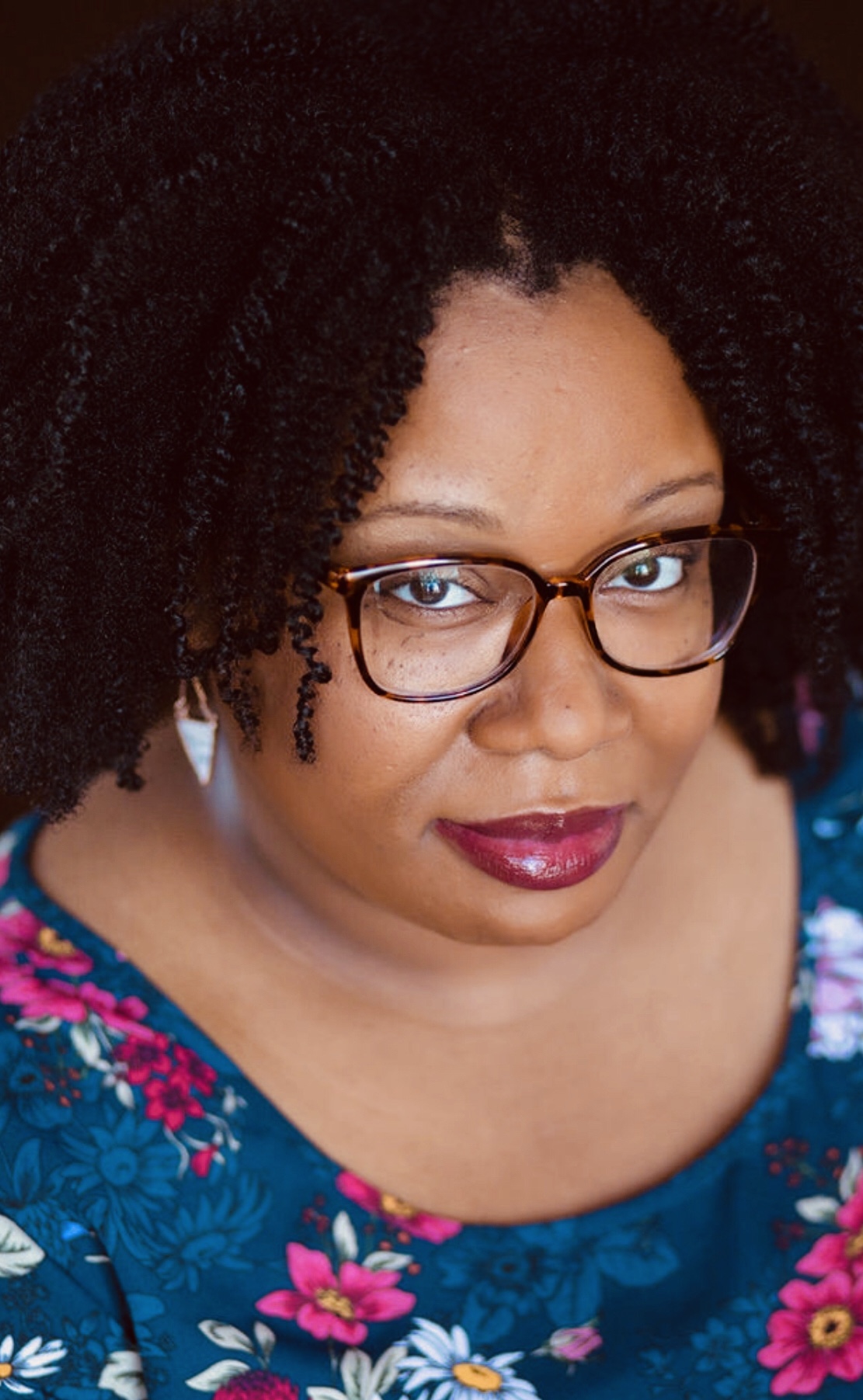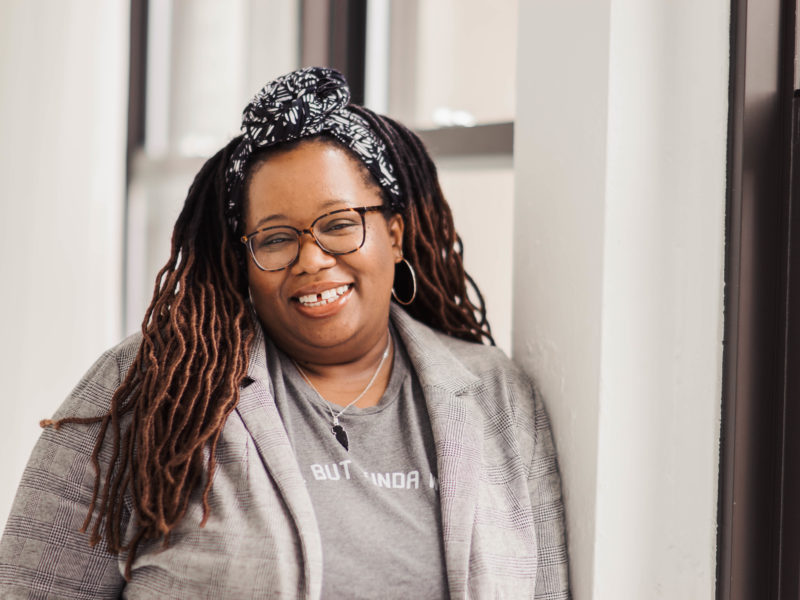K.Y. Robinson on Social Media, Metaphors, and Vulnerability
Introverted yet unapologetic, K.Y. Robinson is a Texas-based writer and self-proclaimed poet laureate of her apartment. Her debut poetry collection, The Chaos of Longing, has been reviewed as “relatable,” “on-the-spot,” and “inspiring.”
Robinson’s work focuses on desire, loss, and healing. She draws inspiration from being a woman of color, a trauma and mental illness survivor, and a hopelessly hopeful romantic. Right now, Robinson is reading The Tradition by Jericho Brown, a poetry collection which takes on themes of fatherhood, legacy, blackness, queerness, worship, and trauma. “The way he writes about the black body—the trauma and survival are brilliant and necessary,” says Robinson.
One of the first books that tugged on Robinson’s heartstrings was I Know Why the Caged Bird Sings by Maya Angelou. “I could relate to Maya because I also suffered trauma as a child and navigated the world in a black body and what came with it,” says Robinson. “It was something I’ve never read before. The imagery and honesty were powerful. It made the caged bird in me feel less alone and gave me wings.”
Robinson is a fan of many poets, her favorites including Saul Williams, Lucille Clifton, Yeskia Salgado, Tania Clark, Ocean Vuong, and Nayyirah Waheed. While she discovered Williams and Clifton through college studies, she discovered the rest of her favorite poets through social media or YouTube.
“Social media has given poetry a megaphone. It has inspired more people to read, write, and publish poetry,” says Robinson.
“With that being said, social media is a revolving door. One day you’re in, one day you’re out. Your work has to be able to thrive without it. When Instagram was down most of the day recently, many learned the valuable lesson of not solely relying on it. What if that one day turned into several?”
Robinson’s poetry may just stand the test of time (sans social media) thanks to its ability to straddle a particular space between deeply personal yet honestly relatable. “Most of my poems are written in retrospect. I like to meditate on moments and document the joy, confusion, ache, and realizations and go from there.” Robinson stays away from pretenses and embraces vulnerability. “We are all human and have experienced these emotions to some capacity. Maybe that’s why readers can relate to it.”
When writing, Robinson believes a good metaphor goes a long way. “I don’t mind straightforward poems but sometimes it strips it of its magic, she says. “Don’t tell me the sun is shining. Tell me it looks like a frying egg, a ball of fire, or a gold medallion shimmering in the distance.”
Dealing with strong emotional and deeply human topics, The Chaos of Longing is split into four sections that chronicle a life, from the early, formative years to themes of retrospect and self-acceptance. “The idea for the book came around 2008 after a failed relationship,” says Robinson.
The project began as post-it notes, receipts, and envelopes filled with words—which she eventually typed up into a collection. “I abandoned the project for many years until I saw that modern poetry was becoming popular. I felt that my little book had a chance,” says Robinson. So, she tweaked the manuscript, added new poems, and self-published it.
In 2017, The Chaos of Longing was picked up by a traditional publisher, which made Robinson reconsider how she wrote about her trauma. “There are things I wrote in the self-published edition that didn’t serve my art or self-care anymore. I realized that I didn’t have to so blatant when it came to certain topics.”
She thought about how she could reach readers without compromising her art. She searched for a balance between frankness and softness. “On my second collection, Submerge, I wanted to reconsider how I wrote about mental illness. I briefly explored it in my first book because a part of me was still ashamed. I had to the strip away the stigma to empower myself and bring awareness.”
In the re-release of The Chaos of Longing, Robinson enjoyed having an editor to work with. “I think my biggest mistake was self-editing my work,” she says. “I really thought I knew what I was doing! I’m grateful to have an editor now. She has saved me from so many pitfalls and it has humbled me.”
While the traditional publishing route offered perks like a handy editor and wider circulation, it also meant more reviews. In her reaction to them, Robinson quotes Erykah Badu: I’m an artist and I’m sensitive about my [stuff]. “I used to read reviews all the time, but I began to internalize the negative ones,” says Robinson. “I know that my writing won’t resonate with everyone. It would be silly to think so. As long as the criticism is constructive, I don’t mind.”
Criticism aside, Robinson loves to meet her readers, and she’s thrilled to share her work with others.
“Literary success to me is meeting people who are affected by my work, inspiring others to pen their own story, and publishing a body of work that makes me proud. I wouldn’t trade that for anything!”
Robinson’s second poetry collection, Submerge, will hit the shelves October 8 of this year. She will also be featured in the second volume of [Dis]Connected: Poems & Stories of Connection and Otherwise along with fellow poets Alicia Cook, Courtney Peppernell, Komal Kapoor, and more.




